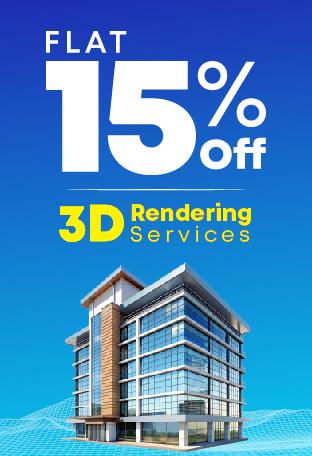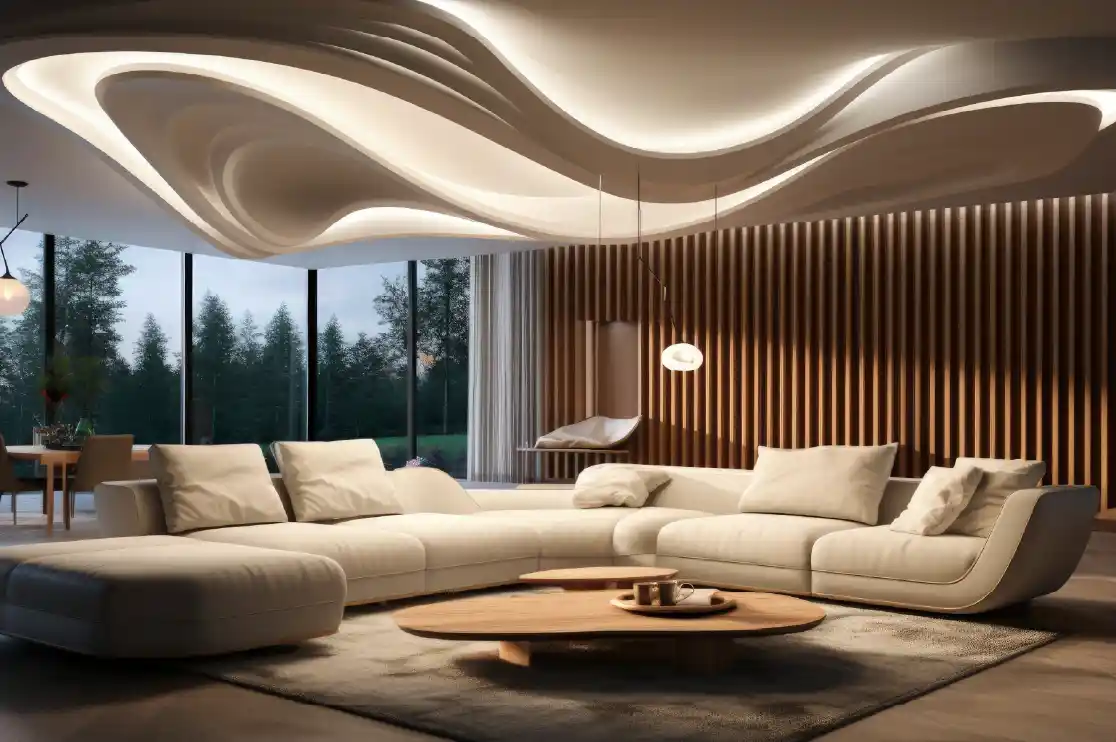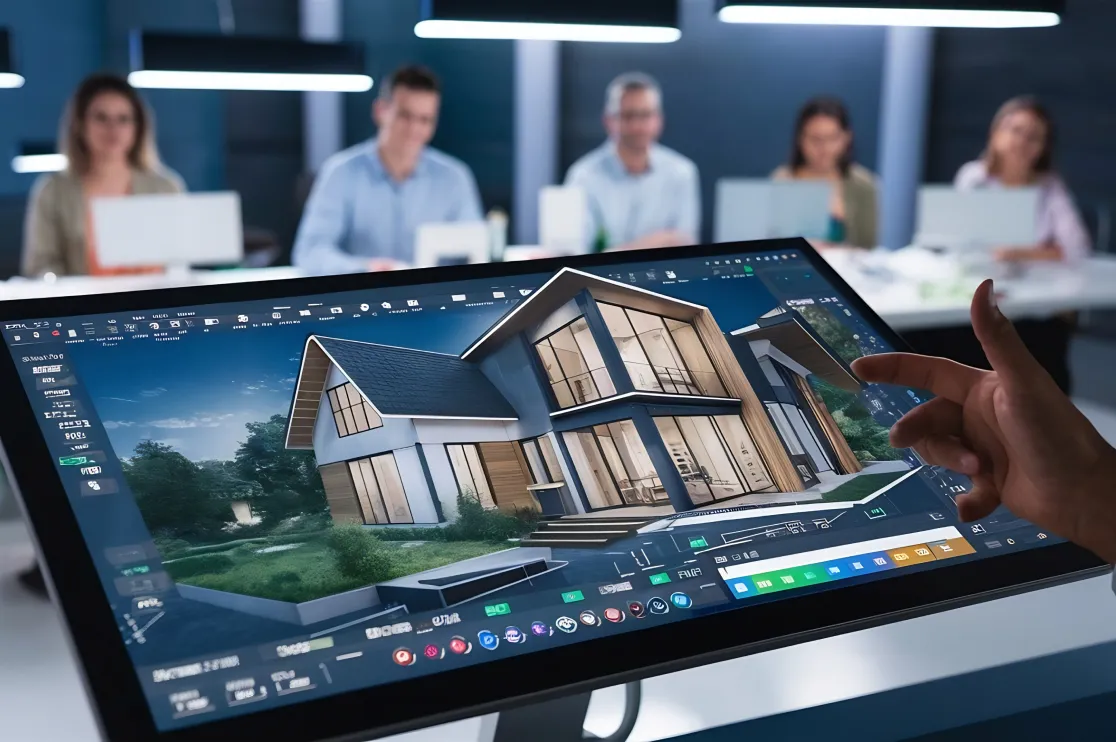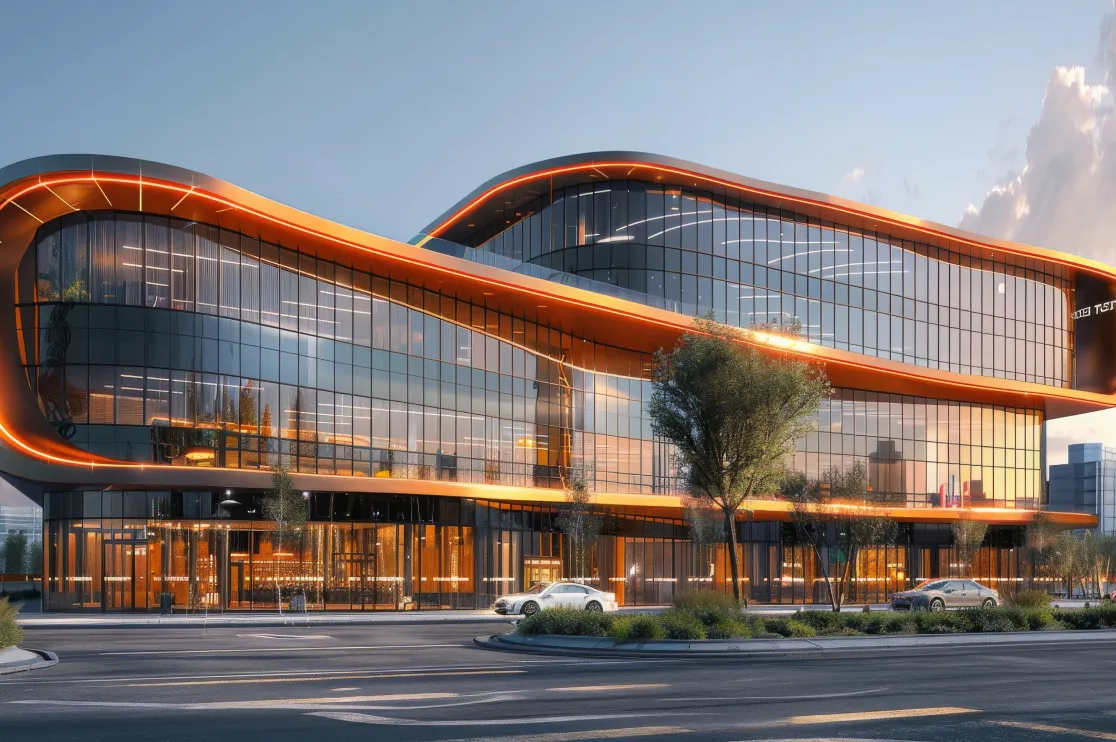If you are new to hiring 3D rendering services, you may not know whether to choose 3D modeling or 3D rendering. Since they are both concerned with computer-generated imagery, there is much misunderstanding about the two terms.
Of course, a sales specialist can recommend the relevant service after you ask clarifying questions. However, it is always best to go in with at least basic knowledge of what you need for your business. Without it, you risk incurring additional costs and wasting time.
With that, let’s dive in so you know what you ask for the next time you contact an architectural 3D company.
Table of Contents:
Introduction to 3D Modeling and 3D Rendering
Whether you are a home builder, real estate developer, interior designer, design-build contractor, or remodeler, you will likely have come across the terms 3D modeling and 3D rendering. However, you might still be unclear about the differences between these two practices.
While the two are often used together, their processes can differ. Understanding their differences is crucial to using 3D images efficiently.
Let’s start with some basic definitions.
What is 3D Modeling?
3D modeling is conducted before 3D rendering.
It is creating a 3D image with a collection of points that connect to faces and edges. These 3D models can later be used for renders, architectural walkthroughs, and more.
Specialized software, such as Rhino, 3ds Max, Blender, and SketchUp, is used to create 3D models. These models are important in industries such as architecture, engineering, manufacturing, movies, and gaming.
The basic functions and benefits of 3D modeling are:
- Facilitates efficient project planning
- Limits or eliminates major system conflicts at the pre-installation phase
- Displays schematic structure before construction
- Shows potential interface between building systems
What is 3D Rendering?
3D rendering (often also called 3D visualization) takes place after 3D modeling is completed.
Rendering transforms the model into a high-quality image, animated model, or video. Examples of software used for architectural rendering include SolidWorks (often used for millwork and precast concrete manufacturing), V-Ray, and Lumion.
3D rendering primarily involves placing 3D models in realistic settings with suitable shadows, atmosphere, lighting, orientation, optical effects, backgrounds, and camera settings. It creates photorealistic images of rooms, buildings, and spaces that have yet to be physically built.
Remember, to receive a realistic rendering result, you need to create 3D models of all objects required in the render first.
The basic functions and benefits of 3D rendering are:
- Providing realistic interior simulations, as well as full-scale visuals of final products & site animations
- Boosting marketing
- Aiding in presentations to clients, prospective clients, and investors
- Helping real estate agents to sell properties
- Facilitating better design decisions prior to construction
3D Modeling vs 3D Rendering: 5 Key Differences
1. Techniques Utilized
In 3D modeling, geometric shapes are used to create objects in 3D spaces. The various techniques used include NURBS, subdivision surfaces, and polygons.
On the other hand, in 3D rendering, textures, patterns, materials, lights, and colors are used to create realistic images of the 3D model.
Both are necessary for creating images for various industries, but while modelers focus on creating accurate representations of objects required, renderers focus on making objects and spaces look realistic.
2. Purposes
3D modeling is used for many end purposes other than rendering.
- It can be used for 3D printing, whether for door handles, prosthetics, device shells, or other items.
- Based on 3D models, CNC machines can produce metal details.
- 3D modeling can provide 360-degree views of products on product pages, eCommerce websites, etc.
3D rendering is useful when the goal is to demonstrate a product. It helps make your marketing far more effective, whether that’s on your website or a TV commercial.
3. Software Used
Generally, different software is used for 3D modeling vs 3D rendering. 3D rendering will often use more specialized software.
Some 3D modeling software includes 3ds Max, Maya, and Cinema 4D. By contrast, some 3D rendering software includes V-Ray, FELIX, and Blender. (3D rendering can also be performed with standard image editing software like Adobe Photoshop.)
Sometimes, freelance 3D artists will do both rendering and modeling. However, at most 3D modeling studios, modeling and rendering are separate professions. This specialization allows for better results for clients and a more predictable workflow.
4. 3D Models are Easier to Edit
Since 3D models are geometric objects, they tend to be easy to modify. They can also be shifted between renders, resulting in totally different images.
Basically, a single model can be used for various lifestyle images and hero shots. Once a model is created, it can represent many design options and color varieties. To put that into perspective, a single 3D model of a custom kitchen island is enough for 20–30 catalog images, design presentations, and a website.
In contrast, 3D renders are far harder to alter or edit – especially animated ones.
5. Time & Effort Required
Of course, the amount of time and effort needed to complete a 3D render vs a 3D model will vary depending on the software, the complexity of the design, the artist’s skills, and so on.
However, in general, 3D modeling tends to take more time than 3D rendering. This is because modeling creates models from scratch, while rendering focuses on the overall look, lighting, textures, etc.
We hope this article has clarified 3D modeling and 3D rendering. Regardless, many people will use the terms interchangeably, and you should ask for clarifications when requesting a quote.
BluEntCAD offers both 3D modeling services and 3D rendering services, so we’re familiar with their differences and how they serve our particular clients. We cater to home builders, real estate developers, interior designers, architects, home renovators, interior decorators, remodelers, and design-build contractors.
Our expertise in providing architectural rendering across multiple business verticals makes us a one-stop shop for all your 3D requirements. Browse our portfolio to see how we’ve helped businesses like yours.
Ready to boost your business with 3D modeling, 3D rendering, architectural walkthroughs, interactive floor plans, and more? Contact us now!


















 Professional 3D Living Room Visualization: 6 Ways BluEnt Helps Interior Designers Win Client Approvals
Professional 3D Living Room Visualization: 6 Ways BluEnt Helps Interior Designers Win Client Approvals  Freelancer or Visualization Studio or In-House Team: What Brings More Value for Builders and Developers
Freelancer or Visualization Studio or In-House Team: What Brings More Value for Builders and Developers  6 Correct Ways to Use 3D Animation Video for Real Estate Advertising to Boosts Sales?
6 Correct Ways to Use 3D Animation Video for Real Estate Advertising to Boosts Sales?  Showcase Commercial Real Estate Like Never Before: The Developer’s Guide to Standing Out
Showcase Commercial Real Estate Like Never Before: The Developer’s Guide to Standing Out